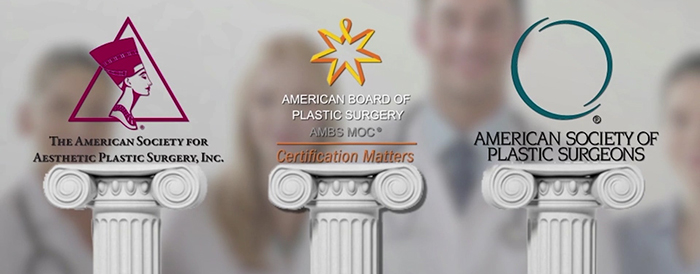The journey towards a successful plastic surgery outcome begins at home, before you ever arrive at your plastic surgeon’s office. While the initial consultation with a plastic surgeon is an important part of your plastic surgery experience, how you prepare for it will help determine how well it goes.
The better prepared you are for your consultation, the more you will get out of the time spent with your surgeon. With the help of board certified plastic surgeon Dr. Jason Cooper, we’ve compiled a list of five ways to help you prepare for your upcoming plastic surgery consultation.
#1 Write Down Your Questions
Have a written list of questions when you arrive for your appointment. By checking off questions on your list as they are answered, you can be sure nothing falls through the cracks.
“Oftentimes a patient will come in, they’ll have an hour with me, and they’ll say, ‘Gosh, doctor, I’ve had so many things to ask you, but I just can’t remember them,’” shares Dr. Cooper.
Cost of surgery and scheduling-related questions will most likely be answered by a surgical coordinator or a nurse, instead of the surgeon. Having a list of written questions prepared in advance will enable the office staff to identify for you the best person to answer each question.
#2 Research the Procedure
Have some basic knowledge about the procedure or procedures you are interested in before you arrive for your consultation. When you know the fundamentals of a procedure, it allows the surgeon to spend less time covering the basics and more time getting to the specifics of how the procedure will work for you individually. “When they’ve done some research, they can really get the most out of their consultation,” emphasizes Dr. Cooper.
Your surgeon’s website is a great starting point for your research. On their website you will find general information about the procedures they offer, as well as before and after pictures of actual patients.
Dr. Cooper also recommends checking out the American Society of Plastic Surgeon’s website as an additional valuable resource. The ASPS website offers cutting edge information on every plastic surgery procedure ranging from non-invasive, to minimally invasive to surgical.

#3 Bring Photos from 10 or 15 Years Ago
If you are visiting a plastic surgeon to address aging of the face, Dr. Cooper recommends pulling out photo albums from decades past and finding youthful close-ups of your face.
“When a patient comes to me with concerns about an aging face, it is critical they bring in a photograph from ten or fifteen years ago,” says Cooper. “I review that photograph with them and make comparisons to the photographs we take in our office. That really sets the stage for understanding where there has been facial aging, and how we can develop a treatment plan that best fits them.”
The goal with facial rejuvenation is not to make a patient look different. Instead, it is to set back the aging clock and help them rejuvenate the face in a way that appears natural. There is no better way to track natural facial aging than to compare photos from younger days to those of today.
#4 Bring a “Wish Photo”
For consultations relating to breast procedures – breast augmentation, breast lift, breast reduction – Dr. Cooper also requests that patients bring in a photo. In this case, the photo is not of the patient, but of the ideal breasts they would like to achieve for their body. He refers to this as a “wish photo.”
It is often said that a picture is worth a thousand words, and plastic surgery is one field where the old adage rings true. What one patient describes as “really big breasts,” may be the same picture as what another patient may consider, “very natural breasts.”

Having a picture to go with the words a patient uses helps Dr. Cooper to understand what each patient is asking for. The better he is able to understand their goals and desires, the better he is able to explain what can or can not be reasonably achieved through surgery.
#5 Have a Timeline in Mind
Before you arrive for your consultation, you should already have an idea of when you would like to proceed with surgery. The consultation should be made for a time relatively close to the time you would like to undergo surgery.
“We want patients to have an idea of when they want to have the surgery,” says Cooper. “It makes a lot of sense to meet relatively close to that time so they don’t forget all of the things that we say when we are going over the treatment plan.”
Do you have vacation days saved up or time off due around an upcoming holiday? Discuss your timeline over the phone when you make your consultation and find out how soon you could book the surgery if you are ready to proceed at the time of the consultation.















Facebook
Twitter
Instagram
YouTube
RSS